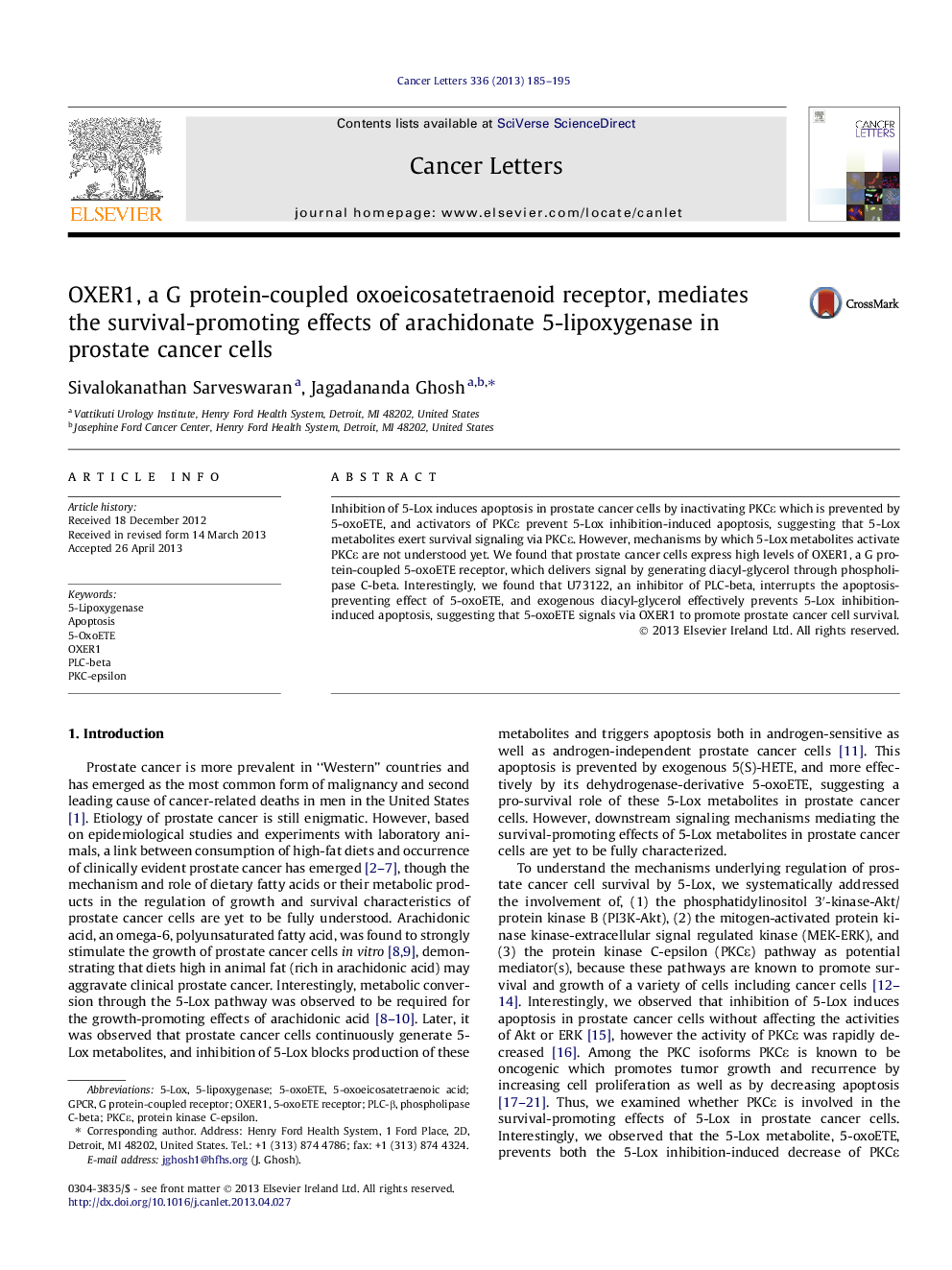| Article ID | Journal | Published Year | Pages | File Type |
|---|---|---|---|---|
| 2112820 | Cancer Letters | 2013 | 11 Pages |
•Inhibition of 5-Lox induces apoptosis in prostate cancer cells which is prevented by 5-oxoETE.•Inhibition of PLC-beta neutralizes the apoptosis-preventing effects of 5-oxoETE.•Prostate tumors and prostate cancer cells express OXER1, a G protein-coupled 5-oxoETE receptor.•DAG, a product of PLC-beta, prevents 5-Lox inhibition-induced apoptosis.•OXER1, PLC-beta and PLCε exist as a multienzyme complex which is disrupted by inhibition of 5-Lox.
Inhibition of 5-Lox induces apoptosis in prostate cancer cells by inactivating PKCε which is prevented by 5-oxoETE, and activators of PKCε prevent 5-Lox inhibition-induced apoptosis, suggesting that 5-Lox metabolites exert survival signaling via PKCε. However, mechanisms by which 5-Lox metabolites activate PKCε are not understood yet. We found that prostate cancer cells express high levels of OXER1, a G protein-coupled 5-oxoETE receptor, which delivers signal by generating diacyl-glycerol through phospholipase C-beta. Interestingly, we found that U73122, an inhibitor of PLC-beta, interrupts the apoptosis-preventing effect of 5-oxoETE, and exogenous diacyl-glycerol effectively prevents 5-Lox inhibition-induced apoptosis, suggesting that 5-oxoETE signals via OXER1 to promote prostate cancer cell survival.
